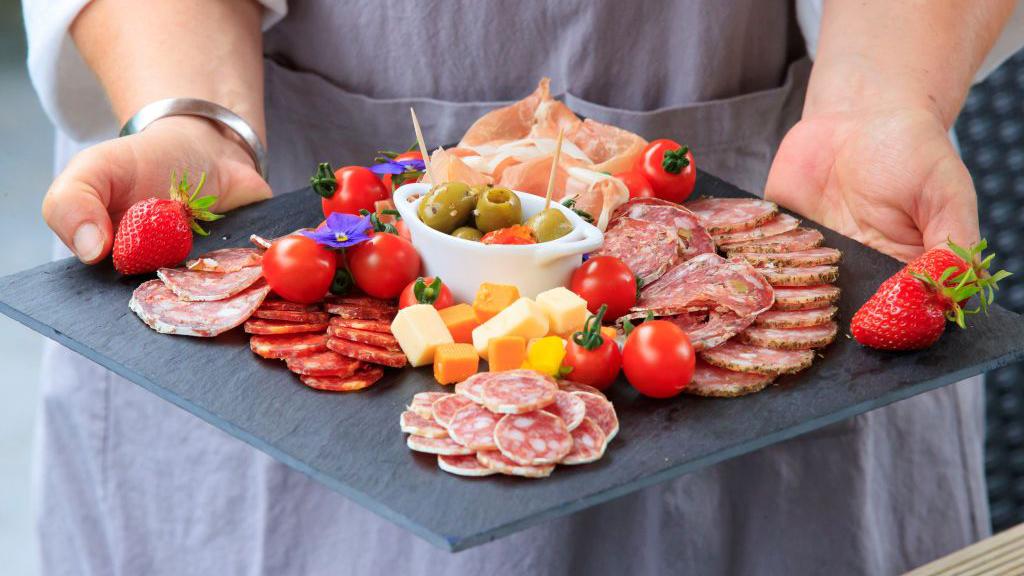UK’s Cheese and Meat Ban Sparks Tensions with EU, Raising Questions Over Trade and Tourism
UK’s Cheese and Meat Ban Sparks Tensions with EU, Raising Questions Over Trade and Tourism
By
Leah Rosenfeld
Last updated:
October 27, 2025
First Published:
November 30, 2025

Photo: BBC
The UK’s ban on bringing dairy and certain meat products from the EU into the country for personal use has remained in place since April, despite the containment of Foot and Mouth Disease (FMD) outbreaks in Germany, Hungary, and Slovakia. The restrictions cover a wide range of items, including cheeses, chorizo, Serrano ham, salami, and even sandwiches containing prohibited ingredients.
Holidaymakers and travelers from the EU have been warned that failure to comply could result in fines up to £5,000 ($6,700) or the seizure and destruction of their goods at the border. The ban also applies to cakes, biscuits, and chocolates containing high levels of unprocessed dairy products or fresh cream.
While commercial imports remain exempt — provided they meet strict biosecurity standards such as heat treatment and veterinary certification — the personal import ban has put a strain on cross-border tourism and retail.
Impact on EU Businesses and Tourism
Cheese shops in Paris, particularly those near Gare du Nord, which sees thousands of English travelers daily, report significant losses. Alexandre Vilaca, founder of Fromagerie Ferdinand, explained that regular UK clients previously purchased vacuum-packed cheeses as gifts, but sales have dropped sharply since the ban.
“Tourists, especially English visitors, were essential to our business,” Vilaca said. “We are very upset by the restrictions. France maintains rigorous sanitary checks, and the ban seems unnecessary given the current situation.” He added that UK cheese producers who partnered with his store were similarly frustrated.
The decline in tourist purchases has hit local retailers economically, reducing revenue from one of their most reliable customer bases.
The Rationale Behind the Ban
The UK government implemented the ban as a precautionary measure to prevent FMD from spreading to British livestock. FMD is highly contagious among cattle, sheep, and pigs, though it poses no direct risk to humans. The disease can spread rapidly and has historically caused devastating economic impacts.
Earlier outbreaks in Germany, Hungary, and Slovakia were contained with rapid culling, surveillance zones, and strict biosecurity measures. Germany was declared FMD-free in April, while Hungary and Slovakia have reported no new cases.
Despite the containment, the UK government maintains the ban to protect domestic farmers and national food security. Defra has invested £1 billion ($1.3 billion) in a National Biosecurity Centre to strengthen disease prevention measures. A spokesperson emphasized that restrictions will remain under review, as long as personal imports of affected products pose a biosecurity risk.
Lessons from the Past
The UK and EU are acutely aware of FMD’s potential economic damage. The 2001 UK outbreak resulted in the culling of over six million animals, with combined public and private sector costs estimated at £8 billion. The EU lost an estimated four million animals, incurring €2.7 billion in eradication and compensation measures.
Even the UK’s smaller 2007 outbreak, affecting only eight farms, cost £147 million due to movement restrictions. These historic examples underscore why the UK government remains cautious, despite current FMD containment across Europe.
Ongoing Tensions
The cheese and meat ban has become a symbolic flashpoint in post-Brexit UK-EU relations. While diplomatic ties have improved in other areas, the restrictions highlight lingering regulatory friction that affects trade, tourism, and small businesses.
With six months into the ban and European outbreaks contained, questions are growing about whether the measures remain justified or whether the UK should ease restrictions to restore confidence among travelers and businesses.
For now, UK authorities stress that protecting domestic livestock and maintaining biosecurity will continue to guide policy decisions, even as frustrations mount on both sides of the Channel.
Popular articles
Subscribe to unlock premium content
Snow, Silence, and Splendor

The $60 Million Market for Ultra-Exclusive Executive Pop-Up Experiences

Conquering the Poles in Absolute Luxury

Snow, Silence, and Splendor

The $60 Million Market for Ultra-Exclusive Executive Pop-Up Experiences

Snow, Silence, and Splendor









